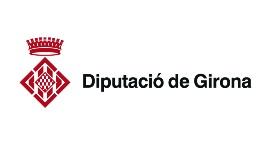Plenary conferences
MTGEW will have five plenary lectures on various topics related with evidential legal reasoning and evidence law. After each presentation, the debate will open with all those attending the event.
Plenary 1
Lecture by Luca Passanante (Università degli studi di Brescia, Italy):
“Michele Taruffo and the evidence studies evolution”
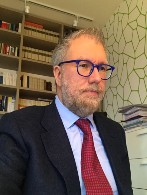
Luca Passanante
Università degli studi di Brescia, Italy
Full professor of civil procedure at the Università di Brescia, where he teaches Civil Procedure, Comparative Civil Justice and ADR. PhD at the University of Bologna, he was visiting scholar in Edinburgh, Cambridge and Oxford. He is lecturer at the Higher School of the Judiciary and has been speaker at various seminars and congresses in Italy and abroad. He’s a member of the Associazione Italiana tra gli Studiosi del Processo Civile, of the International Association of Procedural Law, of the Instituto Brasileiro de Direito Processual and of the Italian British Law Association. He wrote three books and several articles on civil procedure and evidence. Among others: Dell’assunzione dei mezzi di prova in generale, in Taruffo (a cura di), Istruzione probatoria, Zanichelli, Bologna, 2014; La prova illecita nel processo civile, Giappichelli, Torino, 2017; Illegaly obtained evidence in civil procedure: a comparative perspective, in Evidence in the process, Atelier, Salamanca, 2018; Per la difesa dell’onere della prova, in Saccoccio-Cacace (a cura di), Europa e America Latina. Due continenti, un solo diritto, Giappichelli–Editorial Tirant Lo Blanch, Torino–Valencia, 2020.
Plenary 2
Lecture by Marina Gascón Abellán (Universidad de Castilla-La Mancha, España):
"Artificial Intelligence and proof. Can a Machine be a fairer judge?"
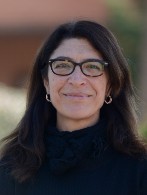
Marina Gascón Abellán
Universidad de Castilla-La Mancha, España
Professor of Philosophy of Law at the Castilla-La Mancha University (Spain), where she directs the master's degree in Health Law and Bioethics. She has carried out study and research stays at universities in Europe and the United States, and usually teaches courses and seminars at other universities and centres connected with the judiciary. Her studies have focused on problems of political philosophy, bioethics, constitutional justice and, above all, argumentation theory, with particular attention to evidence and proof. Her publications in the analysis of evidentiary problems are numerous. Los hechos en el Derecho. Bases argumentales de la prueba (1999, 3ª ed. 2010); La motivación en la prueba (2004); Sobre la posibilidad de formular estándares de prueba objetivos (2005); Freedom of Proof (2005); Validez y valor de las pruebas científicas: la prueba del ADN (2007); La oportunidad pérdida. Responsabilidad, causalidad, probabilidad (2009); La prueba del nexo causal en la responsabilidad por daños (2009); Razones científico-jurídicas para valorar la prueba científica: Una argumentación multidisciplinar (2010); Prueba científica: mitos y paradigmas (2011); Prueba de la causalidad en pleitos de daños (2011); A Prova dos Fatos, (2012); Cuestiones probatorias (2012); Prueba científica: Un mapa de Retos (2013); ¿Una lógica del descubrimiento para la prueba? (2014); Technical Support for a Judge when Assessing a priori Odds (2015); Conocimientos expertos y deferencia del juez (2016); Valoración de la Prueba y Causalidad Jurídica (2017); Prevención y Educación. El camino hacia una mejor Ciencia Forense en el sistema de justicia (2020); Además de la verdad. Defensa de los derechos cuando se buscan pruebas (2020). Ciencia Forense en los tribunales (2021); Prevention and Education: The Path for Better Forensic Science Evidence (2021). She has translated “El derecho dúctil” by Gustavo Zagrebelsky (1995) into Spanish and co-translated “Principia Juris” by Luigi Ferrajoli (2011).
Plenary 3
Lecture by Magne Strandberg (Universitetet i Bergen, Norway):
"The ELI/UNIDROIT Model Rule for European Civil Procedure – seen from the perspective of evidence theory"
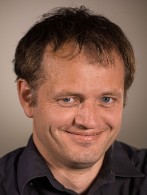
Magne Strandberg
Universitetet i Bergen, Norway
Professor of law at the faculty of law, University of Bergen. His main teaching obligations are within civil procedure law and tort law, and he is also co-chair of the mandatory course in procedural law. One of Strandberg’s fields of research is evidence law. He published a book on evidence and assessment of damages in 2005, and his doctoral thesis from 2010 deals with the standard of proof in civil cases. The doctoral thesis was published as a book in 2012, and Strandberg has in the years to follow published several articles both on the law of evidence and theories of evidence. Strandberg was involved in ELI/UNIDROIT-project which in 2020 was completed by the Model European Rules of Civil Procedure where he took part in the working group on obligations of judges and parties and in a working group on appeal. He is for the time being involved in a project on digitalization of procedural law, which is one element under the project Comparative Procedural Law and Justice organized by Max-Planck-Institute Luxembourg.
Plenary 4
Lecture by Ronald J. Allen (Northwestern University, United States):
"Evidence Theory or Science?: Legal Epistemology Meets its Parents and Isn’t Pleased"
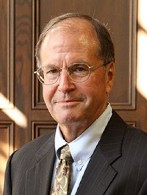
Ronald J. Allen
Northwestern University, United States
John Henry Wigmore Professor at Northwestern University School of Law. He is president of the International Association of Evidence Science. He has been part of various research groups that formulated legal reforms on the judicial process in China and Tanzania. He has published several books and more than 100 articles in various top international journals, including "Comprehensive Criminal Procedure", "An Analytical Approach To Evidence", “Relative Plausibility and its Critics”, etc.
Plenary 5
Lecture by Jennifer L. Mnookin (University of California, Estados Unidos):
"Forensic Fictions: The ongoing epistemic challenges of forensic science as legal evidence"
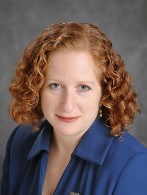
Jennifer L. Mnookin
University of California, Estados Unidos
Ralph and Shirley Shapiro Professor in the UCLA School of Law. She has been the dean of the School since 2015. She is a member of the American Academy of Arts and Sciences and served on the National Academy of Sciences' Committee on Science, Technology and Law, where she co-chaired the President's Council of Advisors on Science and Technology (well known for its report on the use of forensic science in the American criminal courts). She is the co-author of “The New Wigmore. A Treatise on Evidence” and from “Modern Scientific Evidence: The Law and Science of Expert Testimony”. She has published extensively on topics related to forensic science, including latent fingerprint identification, handwriting expertise and DNA evidence, among many others.




